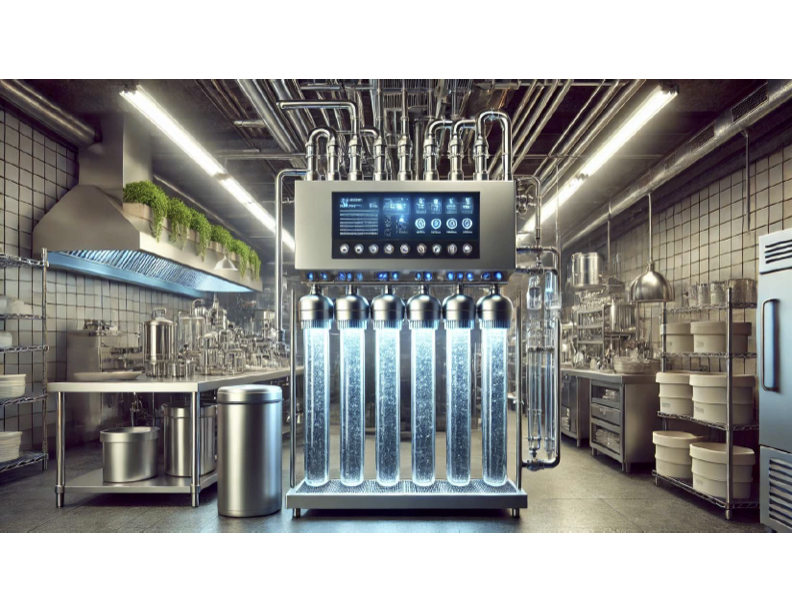Water quality is a crucial yet often overlooked aspect of running a successful restaurant. Whether for cooking, beverage preparation, dishwashing, or customer consumption, clean and safe water is essential for maintaining food quality, operational efficiency, and customer satisfaction. A reliable water filtration system ensures that your establishment serves high-quality water while protecting your equipment and reducing maintenance costs.
Why Water Filtration is Essential for Restaurants
-
Improved Taste and Food Quality The presence of chlorine, sediment, and other contaminants can affect the taste of your dishes and beverages. Filtered water enhances the flavors of food, coffee, tea, and ice, providing a superior dining experience for customers.
-
Protecting Equipment and Appliances Hard water, rich in minerals like calcium and magnesium, can cause scale buildup in coffee machines, dishwashers, and ice makers. A filtration system reduces scale formation, prolonging the life of your equipment and minimizing costly repairs.
-
Ensuring Health and Safety Compliance Contaminants like bacteria, lead, and chemicals in unfiltered water pose health risks. Restaurants must meet strict health and safety standards, and investing in a quality filtration system ensures compliance with local regulations.
-
Cost Savings on Maintenance and Repairs Sediment and mineral deposits can lead to clogged pipes, reduced water pressure, and damaged appliances. With a water filtration system, restaurants can reduce maintenance costs and extend the lifespan of their plumbing and equipment.
Types of Water Filtration Systems for Restaurants
Choosing the right water filtration system depends on your restaurant's needs, water source, and usage. Here are some of the most common types:
-
Activated Carbon Filters
-
Ideal for removing chlorine, bad odors, and organic compounds.
-
Commonly used for improving the taste of drinking water and beverages.
-
-
Reverse Osmosis (RO) Systems
-
Removes up to 99% of contaminants, including heavy metals, bacteria, and dissolved solids.
-
Suitable for high-purity water needs, such as cooking and beverage preparation.
-
-
Water Softeners
-
Designed to reduce water hardness by removing calcium and magnesium.
-
Prevents scale buildup in dishwashers, coffee machines, and steam ovens.
-
-
UV Water Purifiers
-
Uses ultraviolet light to kill bacteria, viruses, and microorganisms.
-
Ideal for ensuring microbiological safety without using chemicals.
-
-
Sediment Filters
-
Removes dirt, sand, and rust particles from water.
-
Typically used as a pre-filter to protect other filtration systems from clogging.
-
How to Choose the Right Water Filtration System
When selecting a filtration system, consider the following factors:
-
Water Quality Assessment: Conduct a water test to determine contaminants present in your water supply.
-
Usage Requirements: Assess how much filtered water your restaurant needs daily.
-
Equipment Compatibility: Choose a system that integrates well with your kitchen appliances.
-
Maintenance Needs: Factor in filter replacement frequency and servicing requirements.
-
Budget: Weigh initial investment costs against long-term savings on repairs and maintenance.
Conclusion
Investing in a high-quality water filtration system is a smart decision for any restaurant. Not only does it improve the taste of food and beverages, but it also safeguards equipment, reduces maintenance costs, and ensures compliance with health regulations. By choosing the right filtration system, restaurants can enhance customer satisfaction and streamline operations for long-term success.
Are you considering upgrading your restaurant’s water filtration system? Conduct a water quality test and explore the best options to keep your business running efficiently and your customers happy.

